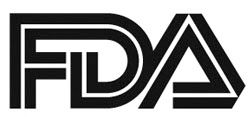FDA Clears IND for BBT-176 in Patients with EGFR-Mutant NSCLC
The Investigational New Drug Application for the novel EGFR tyrosine kinase inhibitor BBT-176 was cleared by the FDA for treatment of EGFR C797S–mutant non–small cell lung cancer, according to a press release from Bridge Biotherapeutics, Inc, developer of BBT-176.

The Investigational New Drug (IND) Application for the novel EGFR tyrosine kinase inhibitor (TKI) BBT-176 was cleared by the FDA for treatment ofEGFRC797Smutant non–small cell lung cancer (NSCLC), according to a press release from Bridge Biotherapeutics, Inc, developer of BBT-176.
“We are highly proud of the IND clearance of BBT-176, a novel EGFR-TKI inhibiting C797S mutations for NSCLC treatments, by the US FDA…Bridge will take the best-efficient development practices for bringing new treatment options for patients with NSCLC in need of novel therapy,” said James Lee, ceo of Bridge Biotherapeutics.1
Following the IND clearance, the company plans to initiate a dose-escalation study to find the maximum tolerated dose (MTD) of BBT-176. The dose-escalation phase will be the first part of a phase I/II first-in-human study in Korea, which will evaluate the safety, tolerability, and anti-tumor efficacy of the drug in patients with advanced NSCLC. A dose-expansion study will be the second part of the study, which will re-evaluate the safety, tolerability, and efficacy of the MTD of BBT-176 in patients in the United States and Korea.
The IND for BBT-176 was submitted in December of 2019 to address the need for other options for the treatment of patients with NSCLC who developed resistance to osimertinib (Tagrisso).
In a recent study on osimertinib resistance in patients withEGFR-mutant NSCLC, experts have determined that osimertinib resistance is inevitable in most patients. Resistance to osimertinib is considered to be highly heterogeneous, and therefore, encompassesEGFR-dependent andEGFR-independent mechanisms. The dependent mechanisms include mutations in T790M, C797S, G796, L792, L718, G719, G724, exon 20 as well asEGFRgene amplification. Independent mechanisms include MET geneamplification,PI3Kpathway activation, HER2amplification, RASMAPK pathway activation, cell-cycle gene alterations, oncogenic fusions, and histologic and phenotypic transformations. The study suggests that a sequential or alternating approach, adjusting the doses of EGFR TKIs, or combining 2 EGFR TKIs can be a strategy for treatingEGFR-mutant NSCLC.2
In pre-clinical studies, BBT-176 showed anti-tumor efficacy againstEGFRC797S triple mutations. It also demonstrated enhanced efficacy when combined with anti-EGFRantibodies.
References
- Bridge Biotherapeutics announces FDA IND clearance for BBT-176, an EGFR TKI for NSCLC [news release]. Seongnam, South Korea: Bridge BioTherapeutics, Inc; January 19, 2020. https://prn.to/2RxNLeV. Accessed January 20, 2020.
- Leonetti A, Sharma S, Minari R, et al. Resistance mechanisms to osimertinib in EGFR-mutated non-small cell lung cancer. Br J Cancer. 2019;121(9):725-737. doi: 10.1038/s41416-019-0573-8.
Kim Evaluates New Regimens for EGFR+ Lung Cancer
January 20th 2025During a Community Case Forum event in partnership with the Medical Oncology Association of Southern California, Edward S. Kim, MD, MBA, discussed the FLAURA2 and MARIPOSA trials of newer regimens for EGFR-positive lung cancer.
Read More
Amivantamab/Lazertinib Maintains OS Benefit in EGFR+ NSCLC
January 15th 2025During a Case-Based Roundtable® event, Joshua K. Sabari, MD, continued discussion of key outcomes from the MARIPOSA trial and toxicity management in patients with EGFR-mutated non–small cell lung cancer in the second article of a 2-part series.
Read More